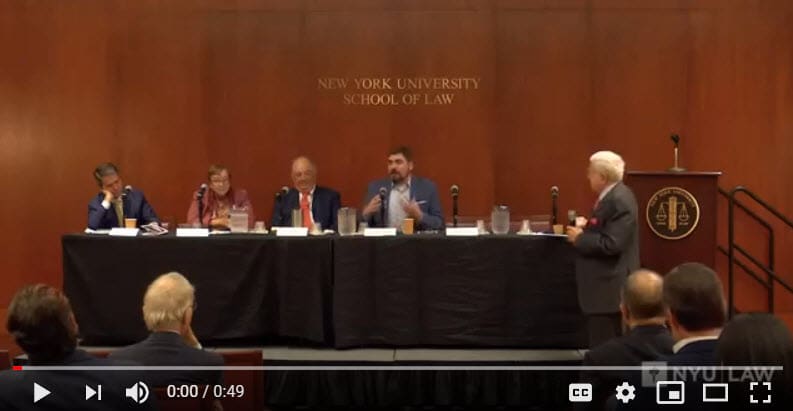Fears Nachawati’s Jonathan Novak was among a select group of legal experts on both sides of high-profile opioid litigation invited recently to speak at New York University Law School’s Conference on the Opioid Epidemic. The gathering of legal experts representing plaintiffs and defendants shined a light on the ongoing public health crisis caused by reckless manufacturing and distribution of highly addictive opioid painkillers, as well as the status of closely watched multidistrict litigation proceeding against numerous pharmaceutical companies.
Mr. Novak was part of a panel that included Motley Rice co-founder Joseph Rice and pharmaceutical industry defense lawyers David Bernick and Sheila Birnbaum.
Noted Novak: “In 2017, over 72,000 Americans died of overdoses. That’s a significant number of human beings, Americans, dying from overdoses.…The crisis is that we normalized something so dangerous and it’s killing us, and it’s hobbling our workforce, and it’s taking money that’s in our communities, and it’s going towards Narcan and emergency responders instead of that money going towards bridges and schools and things like that. It’s a crisis on all levels of the society.”
Mr. Novak’s important role in the opioid ligation was recently highlighted in a feature article in the University of Baltimore Law School’s “Baltimore Law” magazine. The profile describes how he began his legal career as a DEA lawyer focused on controlled substance regulation, policy and compliance. After leaving government service, he played a “key role in a high-profile investigation by The Washington Post and “60 Minutes” that revealed how opioid distributors worked with members of Congress to influence the passage of 2016 legislation that stripped the DEA of its power to stop suspicious shipments of prescription narcotics.”
Writes Baltimore Law magazine: “In his work representing plaintiffs for Dallas-based Fears Nachawati Law firm, Novak travels the country speaking with people addicted to opiates and the families of those who have overdosed and died. He also has an opportunity to speak to communities and educate them about this case. ‘people start crying when they’re in these presentations,’ he says, because of the losses they have experienced.”
